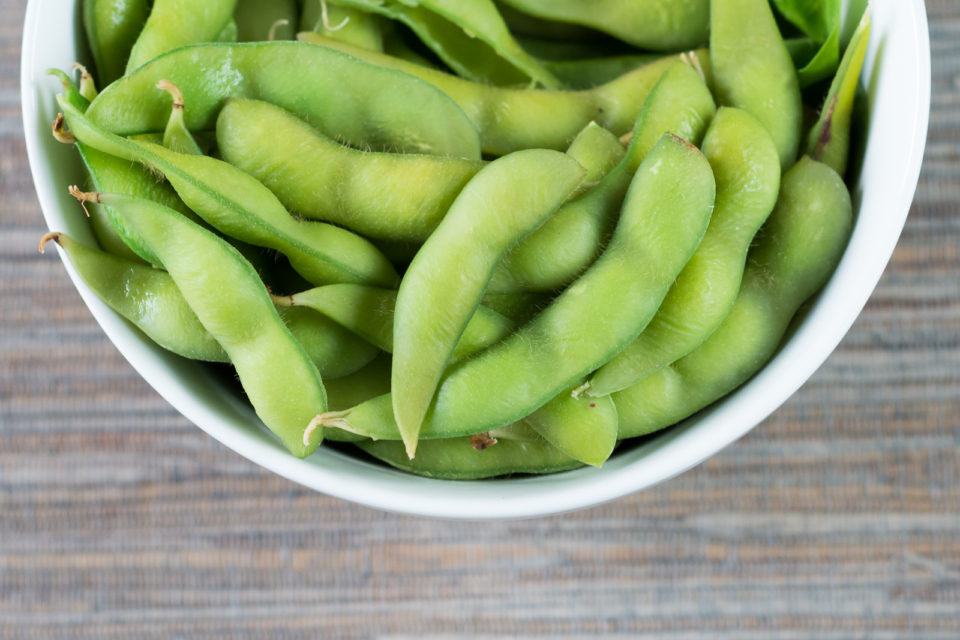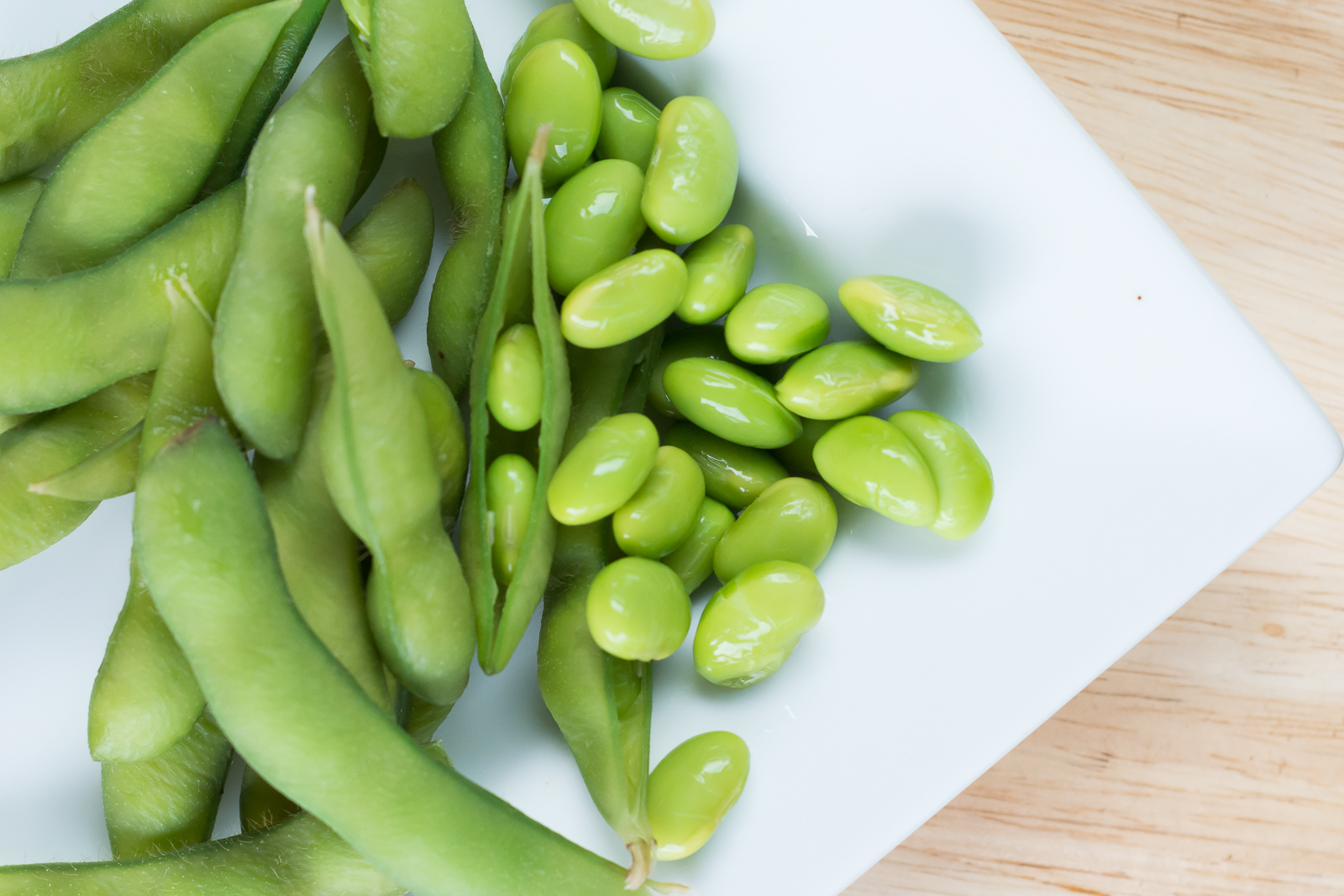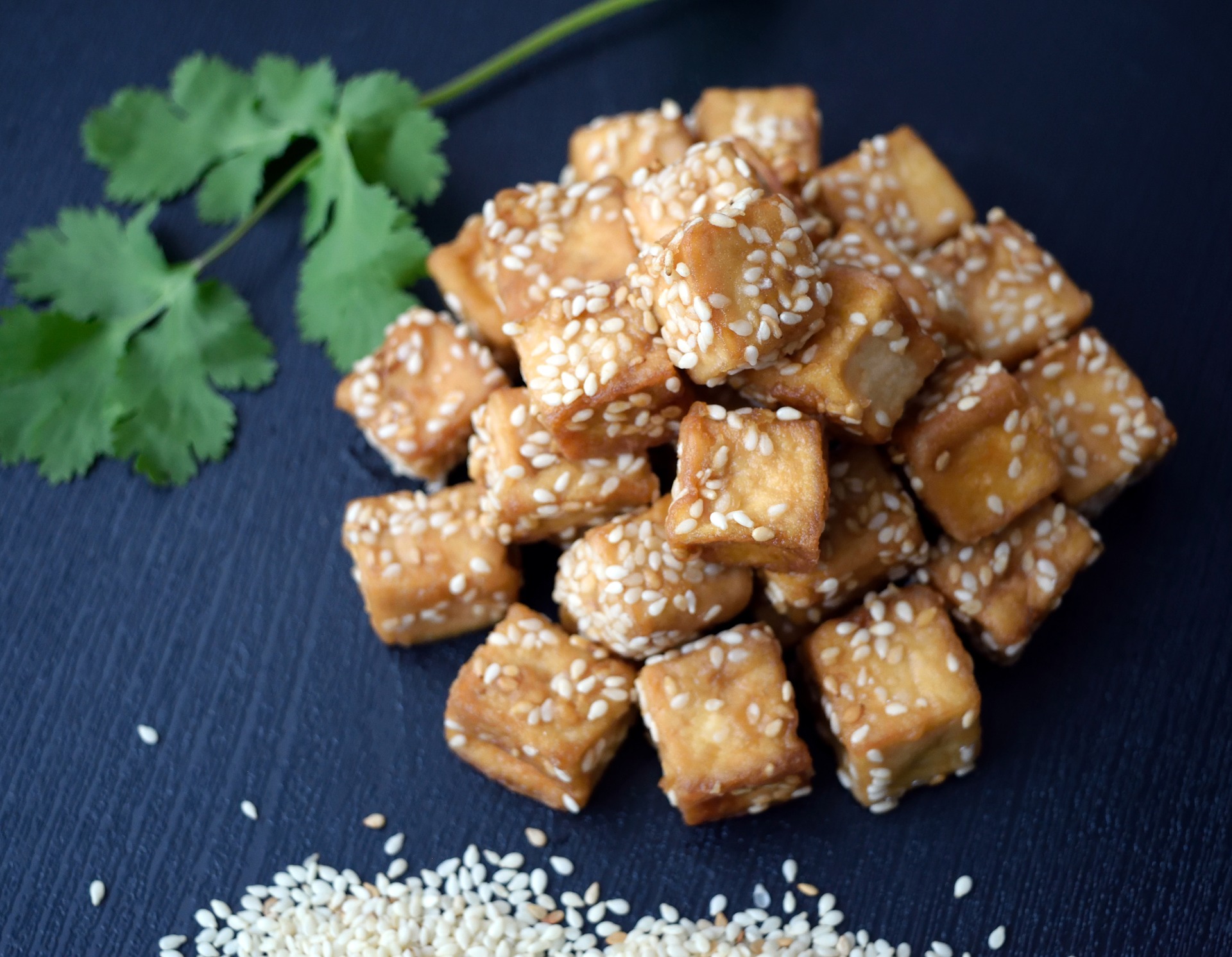As a dietitian and as someone who regularly scans the internet (the best and WORST way to get information), I am often bombarded with battles over the beautiful and simple soybean.
On the one side, people say it’s a miracle food! It cures cancer! On the other, they say “it gives you man-boobs” or is simply “a poison.” People are convinced it’s either a protein-packed panacea or a particularly pernicious poison pill.
Let’s all take a breath, shall we?
The fact is, while soy isn’t the cure-all (no one food is), there is still a ton of misinformation out there! So come along on a journey while I dispel the devilish myths around this mighty legume.
Why So Mean to a Simple Bean?
Most of the debate surrounding soy stems from it being a rich source of isoflavones. They are phytoestrogens (plant chemicals) that can exert estrogen-like effects in the body. This has been the subject of extensive research, with some very valid concerns that it could negatively impact our health. But the fact of the matter is there is almost no credible evidence that traditional soy foods negatively impact health when consumed in reasonable amounts.
Of course, that hasn’t stopped foodie fear-mongering. So I submit to you some of the most common myths, complete with actual, scientific information to swat them away faster than you can bake a Tofurkey.
Does Soy Make You Less of a Man?
This one gets me every time! The rumour gained steam after animal studies suggested that high doses of phytoestrogens impaired male animals’ ability to produce offspring. But the same effect hasn’t been found in male humans. And since rodents metabolize soy isoflavones differently than humans, most of these studies have limited applications.
You ready for the whale of a tale? There was an unusual case of a man developing enlarged breast tissue after eating soy foods. But the case study revealed that this particular gentleman was drinking way more than your average person, downing around 12 cups of soy milk a day!
It may sounds scary, but the symptoms reversed as soon as he stopped guzzling.
Bottom-line: There is no evidence that eating soy affects testosterone, fertility or sexual health in men. As with any food, use common sense (and moderation) and you’ll be fine.
Does Soy Cause Breast Cancer?
This is an easy one: No. The dark corners of the internet like to tell women to avoid soy because it increases the risk of breast cancer. But this is simply not true.
Here’s the kicker: Soy intake is actually associated with a reduced risk of developing breast cancer and may even protect against breast cancer recurrence.
But Paleo says “No!”
Paleo proponents tell you to ditch all legumes—including soy—due to their “toxic anti-nutrients,” more accurately known as phytates and lectins. There is some crumb of truth to this. Phytates and lectins can bind to some minerals and prevent their absorption. But there’s no evidence that this is a significant concern. Plus, the amount in the normal food supply is way too low to be a health concern.
Soaking, boiling or microwaving reduces both lectins and phytates, but last time I checked, nobody was chowing down on buckets of uncooked soybeans. So this really shouldn’t be an issue.
Soy, What is it Good For?
You’ve heard the myths, now give me a chance to explain the truths! There’s no disputing that soy is a cheap, lean source of protein, matching meat gram for gram. It’s also loaded with heart-healthy, unsaturated fats, plus iron, folate, calcium and B-vitamins. But that’s only the beginning!
Heart Health
Soy is high in fibre and low in saturated fat, making it a very heart healthy choice. Plus the isoflavones in soy may actually reduce cholesterol synthesis and premature atherosclerosis. In fact, research shows that eating 20 – 25 grams of soy protein each day can lower LDL-cholesterol (the harmful kind) by 3 – 5%.
Bone Health
Fortified soy beverages and tofu are rich in protein and calcium which, when combined with exercise, promote bone health. Current research is also looking at whether soy isoflavones may help us maintain bone strength in our later years. Just make sure to choose soy products that are fortified with calcium and vitamin D when replacing dairy foods in the diet!
Cancer
Although eating soy foods hasn’t specifically been shown to prevent cancer, there is strong evidence that eating a plant-based diet does. And eating legumes (like soy) has been associated with a reduced risk of developing specific cancers such as stomach, breast and prostate cancer.
Don’t Fear the Tofu
So the next time someone gets on their soy soapbox, remember: you have science (and this dietitian!) on your side!
One last thing: To reap soy’s benefits aim for two to three servings a day from minimally processed soy foods like tofu, soy milk, edamame and miso. Excessive consumption of soy (or anything for that matter), and soy supplementation, however, isn’t recommended.
Soy you later!





